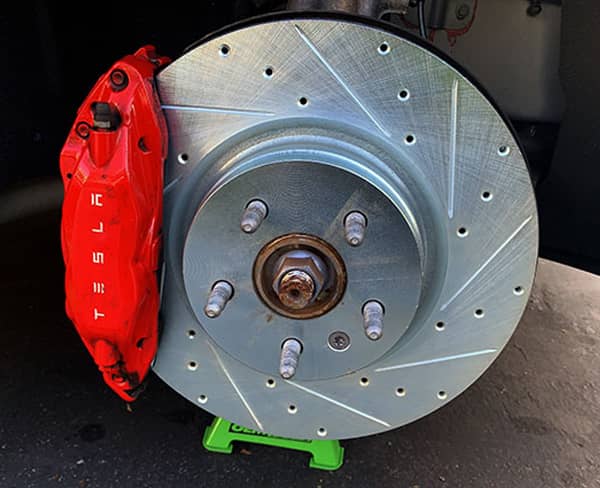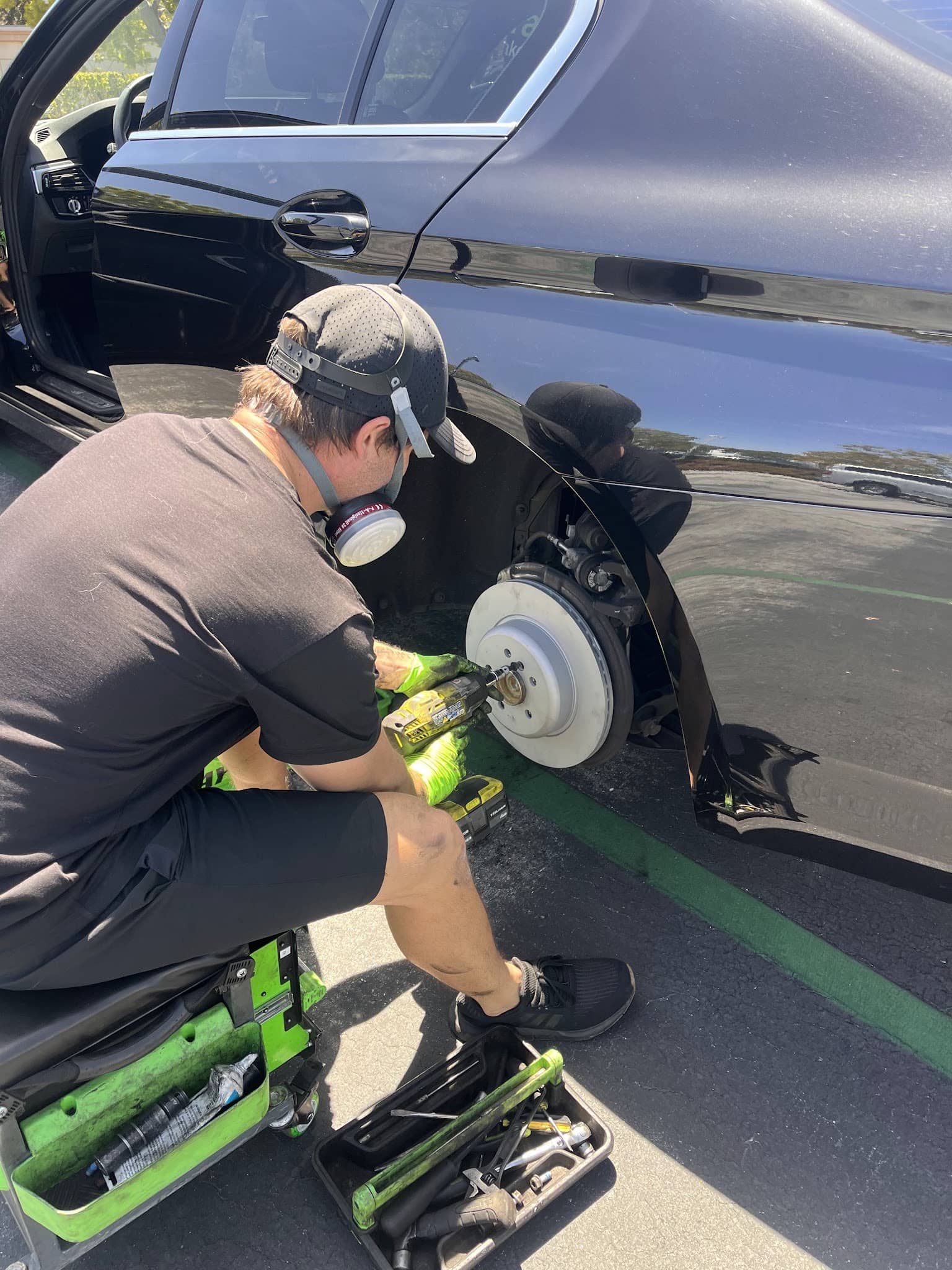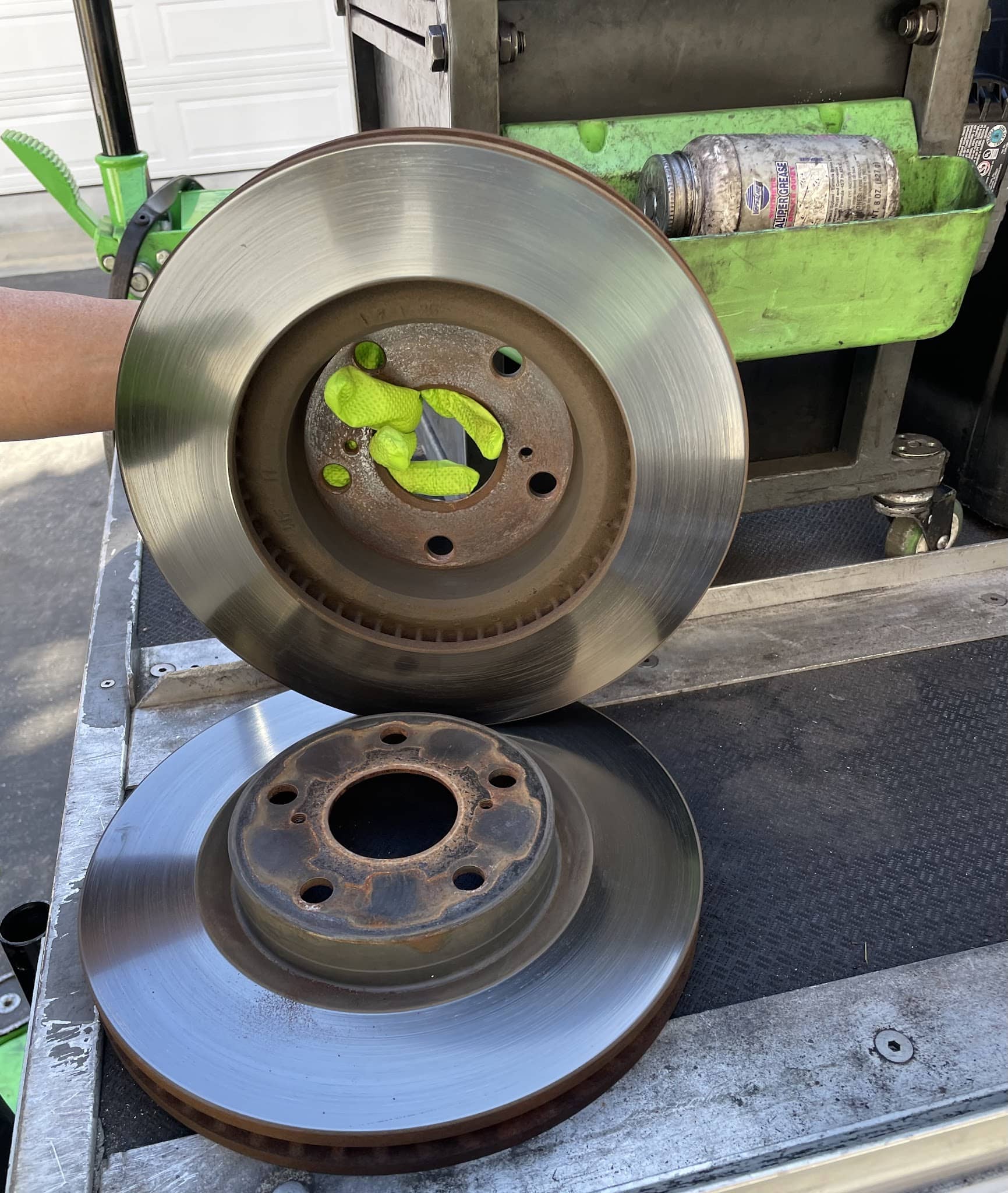Your vehicle’s braking system is one of the most crucial safety features, and maintaining it is essential to ensure your safety on the road. Regular brake inspections and timely replacements can save you from dangerous driving conditions. However, many drivers wait too long to address brake issues, which can lead to costly repairs and, more importantly, put your safety at risk. In this post, we’ll go over 10 warning signs that indicate you need new brakes, helping you keep your vehicle in top condition and safe to drive.
Why Are Your Brakes So Important?
Brakes are arguably the most important safety feature in any vehicle. Without properly functioning brakes, you wouldn’t be able to stop in time to avoid accidents or even drive safely. The brake system is designed to stop your vehicle by converting kinetic energy into heat through friction. Over time, however, various components of the brake system wear out and need to be replaced.
Brake pads, rotors, brake lines, and fluid are all subject to wear, and if one or more of these parts fail, it can significantly reduce your vehicle’s ability to stop effectively. This is why paying attention to your brakes and addressing any warning signs is crucial.
Let’s dive into the 10 warning signs that you may need new brakes.
1. Squeaking or Squealing Noises
One of the most common signs that your brakes may need attention is a squeaking or squealing noise when you apply the brake pedal. This noise is often caused by the brake pads rubbing against the rotor, especially if they have become too thin.
Why It Happens:
Brake pads are designed with a built-in wear indicator—a small metal tab that makes contact with the rotor when the pads are worn down. When the pad material gets too thin, this indicator starts making noise as a signal to the driver that it’s time for a replacement.
What to Do:
If you hear squeaking or squealing every time you press the brake pedal, it’s time to have your brake pads checked. These sounds are usually an early warning, so scheduling a brake inspection right away can save you from more expensive repairs down the line, such as rotor replacement.
Read More: Why Are My Brakes Squeaking?
2. Grinding Sounds When Braking
Grinding sounds are far more concerning than squealing. If you hear a grinding sound when braking, it’s usually a sign that the brake pads are completely worn down, exposing the metal backing plate. This can cause damage to other components, such as the rotors, making the situation more costly to fix.
Why It’s Dangerous:
When the brake pads wear out completely, the metal backing plate will grind against the rotor. This can lead to severe damage to the rotor, resulting in an uneven surface, which will make your braking performance even worse and can lead to costly rotor repairs or replacement.
Act Fast:
If you hear grinding sounds, stop driving immediately and have your vehicle inspected. Continuing to drive with grinding brakes can cause significant damage to the brake system and compromise your safety on the road.
3. Reduced Braking Performance
A noticeable decrease in braking performance is another critical sign that your brake system needs attention. If your car takes longer to stop or feels less responsive when you apply the brake pedal, this can signal several potential problems within your braking system.
Feeling of Soft Pedal:
A soft or spongy brake pedal that sinks to the floor is one of the clearest signs that something is wrong. This could indicate that there is air in the brake lines, or you might have low brake fluid. Both of these issues require immediate attention from a professional mechanic to avoid brake failure.
What It Means:
A reduced braking response is dangerous, especially in emergency situations. It could mean that the brake pads are worn, the brake fluid is low, or there’s a problem with the brake calipers or master cylinder. Ignoring these issues could lead to brake failure when you need them most.
4. Vibration When Braking
Feeling vibrations in the brake pedal or steering wheel when you apply the brakes is a sign that your brake pads or rotors are experiencing uneven wear. When the rotors become warped or have grooves due to extended wear, they can cause vibrations when you press on the brake pedal.
Potential Issues:
The vibrations usually occur when the brake pads can’t make even contact with the rotor. This might be due to a warped rotor or worn-out brake pads. If left unchecked, these issues can compromise braking efficiency and make the vibrations more pronounced.
Solution:
If you experience vibrations while braking, it’s a good idea to have both the brake pads and rotors inspected. Depending on the severity, you might need to replace both components. Resurfacing or replacing the rotors may be required for smooth braking.
5. Brake Warning Light
Modern vehicles come equipped with a brake warning light that will illuminate on the dashboard if there’s an issue with the brake system. The brake warning light could signal a variety of problems, from low brake fluid to issues with the brake pads, sensors, or the hydraulic system.
When It Lights Up:
If the brake warning light appears on your dashboard, it’s critical to address the issue immediately. Ignoring it can lead to more significant damage or brake failure. A malfunctioning brake system can be dangerous and should be inspected by a qualified technician as soon as possible.
Don’t Ignore It:
If the brake warning light comes on, don’t wait until your brakes feel problematic. Schedule an inspection immediately to ensure your brakes are operating correctly.
Read more: How to Flush Brake Fluid?
6. Pulling to One Side When Braking
If your car pulls to one side when you apply the brakes, it’s often a sign that the brake pads are wearing unevenly or that one of the brake calipers is stuck. Uneven braking force can cause your vehicle to pull left or right, making it difficult to maintain control while driving.
Why It Happens:
When one side of your vehicle’s brake system is more worn than the other, the car will pull in the direction of the more effective brake. This can occur due to uneven brake pad wear, a malfunctioning caliper, or an issue with the brake fluid distribution.
Fixing It:
Have your brakes inspected and, if necessary, replace the brake pads or repair the calipers. This issue can compromise your vehicle’s handling and make braking unsafe.
7. Burning Smell When Braking
A burning smell when applying the brakes often indicates that the brakes are overheating. This can occur after excessive braking, such as driving down a long, steep hill, or if your brake pads are worn down to the point where they are creating excessive heat.
Possible Causes:
When brake pads overheat, they can lose their ability to generate friction effectively, which means they can’t slow your car as well. A burning smell may also be due to a stuck brake caliper or an issue with the brake fluid.
Immediate Action:
If you notice a burning odor, pull over safely and allow your brakes to cool down. Continuing to drive with overheated brakes can lead to serious damage to your brake system. Have your brake components inspected, and make sure everything is functioning correctly.
8. Unusual Brake Pedal Feel
If the brake pedal feels different than usual—either too hard or too soft—this could be a sign that something is wrong with your brake system. A hard brake pedal may indicate a problem with the brake booster, while a soft pedal can point to air in the brake lines or a fluid leak.
What It Means:
A hard brake pedal makes it difficult to apply the right amount of pressure to stop your vehicle, while a soft pedal means that your brakes are not generating enough stopping force. Both issues need to be addressed immediately to prevent brake failure.
Solution:
Have a professional mechanic inspect your brake system to determine the cause of the unusual pedal feel. Depending on the issue, you may need to replace the brake fluid, repair the brake booster, or replace other brake components.
9. Increased Stopping Distance
If your vehicle is taking longer to stop than usual, it means that your brake system is no longer as effective as it should be. An extended stopping distance can be a sign of worn-out brake pads, low brake fluid, or issues with the rotors.
Cause:
The primary reason for an increased stopping distance is that the brake pads are no longer providing adequate friction to slow down your vehicle quickly. Low brake fluid can also prevent the brake system from functioning efficiently.
Why It’s Dangerous:
An extended stopping distance is a serious safety hazard, especially in emergency situations. If you’re unable to stop quickly, it could lead to collisions or accidents.
10. Visible Wear and Tear on Brake Pads
One of the easiest ways to check the health of your brakes is by inspecting the brake pads. Most brake pads come with a wear indicator or can be visually checked through the wheel. If you notice that your brake pads are less than 1/4 inch thick, they need to be replaced.
What to Look For:
If the brake pads appear worn down or if you notice grooves or uneven wear, it’s time to replace them. Failing to replace your pads can result in more severe damage to the rotor and other brake components.
Read more: 4 Risks of Driving With Worn Brake Pads
How Often Should You Replace Your Brakes?
Brake pads typically need replacing every 30,000 to 70,000 miles, depending on your driving habits. For instance, frequent driving in stop-and-go traffic or on hilly terrain can lead to more frequent replacements.
Get Your Brakes Serviced at EZ-Brakes
When it comes to your vehicle’s safety, you can’t afford to take chances with your brakes. At EZ-Brakes, we offer a comprehensive range of professional brake services to ensure your vehicle stops smoothly and safely. Our certified technicians are ready to handle any brake issue, big or small, with precision and care. Our services include:
• Brake Pad Replacement
• Brake Rotors Replacement
• Brake Fluid Flush
• Brake Master Cylinder Replacement
• Wheel Cylinder Replacement
Whether it’s time for a simple brake check or a more extensive brake system repair, EZ-Brakes uses only the highest quality parts and the latest diagnostic tools to keep your brakes performing at their best. Don’t wait for the signs of brake failure—schedule an appointment today and drive with peace of mind, knowing your brakes are in expert hands!
FAQ: Frequently Asked Questions About New Brakes
HOW DO I KNOW IF MY BRAKE PADS NEED REPLACEMENT?
Look for a thickness of less than 1/4 inch on the brake pads, and listen for any squealing or grinding noises while braking.
CAN I DRIVE WITH WORN-OUT BRAKES?
It’s unsafe to drive with worn-out brakes. If you’re noticing any of the warning signs listed above, it’s important to get your brakes inspected immediately.
HOW MUCH DOES IT COST TO REPLACE BRAKES?
Brake replacement costs vary, but on average, it can range from $150 to $500 per axle depending on the make and model of your vehicle.
WHAT HAPPENS IF I DON’T REPLACE MY BRAKES IN TIME?
Not replacing your brakes in time can cause more severe damage to the brake system, including the rotors and calipers, leading to more expensive repairs.
HOW CAN I PROLONG THE LIFE OF MY BRAKES?
Drive carefully by avoiding harsh braking, maintaining a steady speed, and scheduling regular brake inspections to ensure everything is functioning properly.
Conclusion: Stay Safe and Maintain Your Brakes
Your brakes are critical to your safety. If you notice any of the warning signs mentioned above, don’t delay in scheduling a brake inspection. Regular brake maintenance and timely replacement can keep your vehicle running smoothly and ensure your safety on the road. If you’re experiencing any of these issues, contact EZ Brakes today to have your brakes inspected by our expert technicians. Stay safe and keep your vehicle in top condition!





